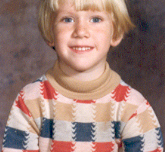With a seemingly limitless fountain of misleadership coming from the Bush administration on issues ranging from ideologue-driven foreign policy debacles to ideologue-driven assaults on our economy and civil liberties, it is easy to get the impression that our system is under attack from within. Given this environment of aggressive obfuscation, democracy-threatening issues presenting themselves with a disconcerting number of peculiarities demand our full attention.
Such is the case with the issue of the computerized voting machines currently being installed around the country in compliance with the Help America Vote Act, legislation that seemed too good to be true considering the Bush vs. Gore fiasco of 2000. Many of these new systems were in place in time for the 2002 midterm elections.
Recently, hundreds of top computer scientists from Stanford, Johns Hopkins and other universities have stepped forward to blow the whistle on these new voting machines, citing major security holes which could allow even a second-rate hacker to tamper with results. Since, amazingly, the new machines leave no verifiable paper trail of votes cast, any such tampering would be undetectable, and a recount of unexpected results would be meaningless since the machine would simply spit out the same vote count.
Adding fuel to this concern, the results of a number of the 2002 midterm elections using the new machines raised eyebrows. According to a report by Greg Palast and Ina Howard:
In 2002, Comal County, Texas, tried out new computer voting machines - and three Republican candidates each won their respective offices with exactly 18,181 votes. "Isn't that the weirdest thing?" County Clerk Joy Treater asked at the time. "We noticed it right away, but it is just a big coincidence."
Disturbingly, there are a surprising number of similar accounts. In all, Florida reported losing over 100,000 votes due to software error, and New Jersey, Missouri, Georgia, Texas, and at least 10 other states reporting errors and irregularities as well. A Florida Democrat losing one such irregular election took the case to court to have the computers examined. The judge threw the case out, ruling that the internals of a voting machine were a manufacturer's trade secrets.
To make matters more peculiar, the four major corporations producing the new voting machines, Diebold, ES&S, Sequoia, and SAIC, all have significant ties to the Republican party and/or the Bush administration. Diebold Chairman of the Board Walden O'Dell, for example, a top Bush campaign fundraiser, publicly committed himself the other day to "deliver" his states votes to Bush next year. Needless to say, a statement like that demonstrates a conflict of interest, and can easily be interpreted as conspiracy.
Given the rising tide of concern, Congressman Rush Holt (D-NJ) has introduced new legislation, The Voter Confidence and Increased Accessibility Act of 2003 (H.R. 2239), a bill which would make verifiable paper records mandatory on all voting machines. As Congressman Holt says:
Voting should not be an act of blind faith. It should be an act of record.
Obviously, this legislation needs to pass. No one wants to believe that those in power would be willing to stoop to rigging an election in their favor, but the door being opened wide to such a possibility is a risk the American People should not be asked to bear.
